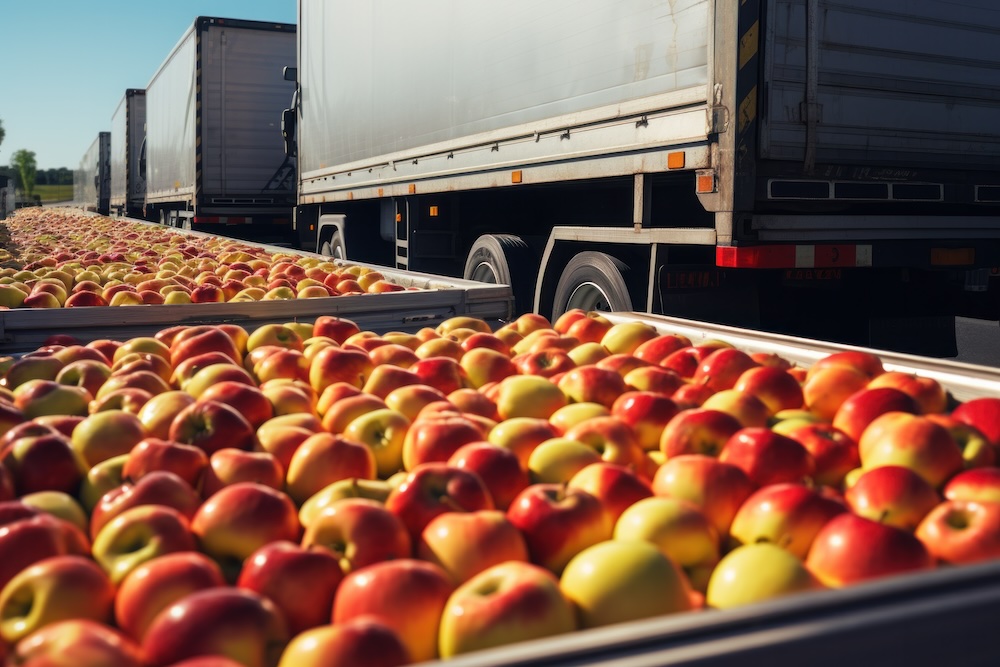
Speaking ahead of the introduction of the first stage of the Border Target Operating Model (BTOM), which will see checks put in place at the UK’s border with the EU, Nichola Mallon, Logistics UK’s Head of Trade, is now seeking urgent clarification from government about exactly what will be required from business to ensure that trade can continue to flow smoothly:
“Logistics businesses have been pressing government for clarity on how border checks will be done on freight from the EU since the Brexit vote,” she says.
“With only days until the first stage of the BTOM is to be introduced, why is the government providing conflicting and confusing information that will slow down the preparedness of the UK’s businesses to trade effectively with their EU suppliers?”
Defra stated on 24 January 2024 that it was changing its classification of how fruit and vegetable imports will be handled after 31 October 2024, meaning they will be subject to physical checks before being passed to cross the UK border.
Since then however, the government has rowed back, stating that some fruit and vegetables from the EU are “temporarily being treated as low risk” and that “further information related to the categorisation of fruit and vegetables from the EU will be available shortly”.
No rationale has been provided for this reclassification of fresh produce or any further detail given. And as Ms Mallon continues, this confusion is preventing businesses from preparing effectively for the country’s new trading relationship with the EU:
“In selling the BTOM to industry, the government stated that 90% of all sanitary and phyto-sanitary (SPS) commodities – those of plant or animal origin - are low risk, meaning they wouldn’t require an Export Health Certificate, be subject to physical checks or hit with a higher import charge. This change in classification will add significant time and costs to this critical “just in time” supply chain.
“Logistics businesses are already struggling with rising inflation, as they operate on particularly narrow margins. These increased costs can only add to inflation and at a time when food inflation remains high.
“Our members have kept the UK stocked with goods throughout the pandemic, and have worked tirelessly to prepare for a post-Brexit world. They should not be given conflicting information and kept in the dark until the eleventh hour. Our members deserve better from government. We are seeking urgent clarification on this issue and for decisions on all outstanding issues to be made public, including the import charge government will apply at its border control posts.”
Marco Forgione, Director General of the Institute of Export & International Trade said this late announcement on changes to the risk categories and the way they have been handled is a matter of some concern:
“At a time when business is preparing for the most significant modernisation of the UK border in several generations, the lack of communication on this reclassification of fruit and vegetable products is not very encouraging.
“This reclassification means that, unexpectedly, a range of fruit and vegetables coming from the EU are now subject to new processes and administrative requirements.
“We know that businesses within the UK and EU, particularly SMEs, are struggling to get to grips with the 31 January changes and have concerns about the new physical checks, which will come in to force at the end of April.”
Mike Parr, Director of logistics firm PML Seafrigo, which specialises in the movement of perishable goods, said: “The news marks yet another U-turn by the UK government which will have a profound impact on those operating in the transfer of perishable fruit and vegetables from Europe into the UK and ultimately, on the availability of fresh produce on the supermarket shelves.
“We’ve already endured so much chaos at the behest of officials who seem to be either oblivious or simply don’t care regarding the ramifications of their erratic decision making.”
“The UK is becoming a laughing stock and many producers are simply not interested in working within its ever-changing logistics landscape.
“To say we are frustrated is an understatement,” he added.